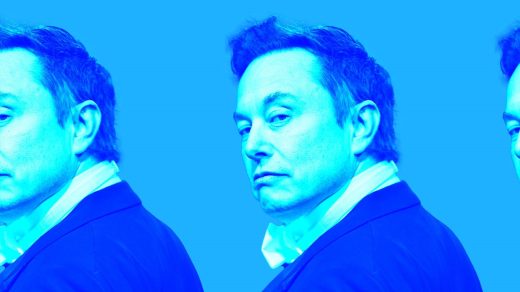The big question Elon Musk hopes to answer with xAI: ‘Where the hell are the aliens?’
In a live audio conversation on Twitter on Friday, Elon Musk shed some new light on his newly announced AI company, xAI.
More than 40,000 people tuned in to Twitter Spaces to hear about the new company, including OpenAI president Greg Brockman and ex-Twitter CEO Jack Dorsey. But few details were forthcoming, and lots of questions about xAI’s focus and business model remain.
“This is really embryonic at this point,” Musk said, responding to a question about xAI’s mission. “It’ll take just a minute to make something useful—we want it to be a useful tool for people, or businesses, or whatever.”
Musk and his small staff of researchers said they hope to build AI systems with far more brain power than humans and that can “see further into the fundamental realities of the universe,” as one of the researchers put it.
“The safest way to make safe AI systems is to make them maximally curious and truth-seeking,” said Musk, who has been outspoken about the misalignment dangers that future AI could present to humans. He added that AI systems must be transparent and readily acknowledge their errors.
Asked what specific problems the xAI researchers would work on, Musk first mentioned studying questions about dark energy, dark matter, and the nature of gravity.
Then he drifted into stranger territory. He hopes to use AI to understand why there’s so little evidence of extraterrestrials visiting the Earth.
“If the universe is in fact 14 billion years old, where are all these aliens?” he said. “If anyone would have seen evidence it’s probably me, and I haven’t seen any. . . . Where the hell are the aliens?”
Musk worried that we humans may be the only conscious beings in our little corner of the galaxy. “It would be wise to assume that consciousness is very rare,” he said, adding that humans should look very hard for other sentient beings, if they exist.
Musk also cited scientists’ prediction that the sun is expanding and will one day boil the oceans on Earth, making our planet something like Venus.
All of these issues are really math problems, the xAI researchers say, that can be studied with powerful AI systems. Based on those use cases, one might conclude that Musk is setting up a company to conduct research projects that explore difficult physics problems.
But that doesn’t appear to be true. One of the researchers, in fact, said xAI intends to release its first product to the public fairly soon. xAI will indeed compete with companies such as OpenAI and Google, which have both made waves with their respective large language models. Musk said xAI will train its own chatbot on the rich fund of Twitter conversations that he controls.
Musk has been critical of the “woke” approach by which OpenAI has trained the LLMs underpinning ChatGPT. He said he’ll take a much less active role in putting guardrails around what the xAI chatbot can say.
“I do think there is a significant danger to be politically correct, and to train it not to say what it actually thinks is true,” he said. “At xAI, we have to let the AI say what it really believes is true. That will result in some criticism, obviously.”
The researchers Musk has recruited to work at xAI come from places like OpenAI, Google DeepMind, and the University of Toronto, an AI research powerhouse. Each of the researchers was given a few minutes during the Twitter Spaces to talk about their background, their accomplishments, and their areas of expertise and interest.
xAI says that in two weeks it will provide more information on the first product it plans to release to the public.
(14)



